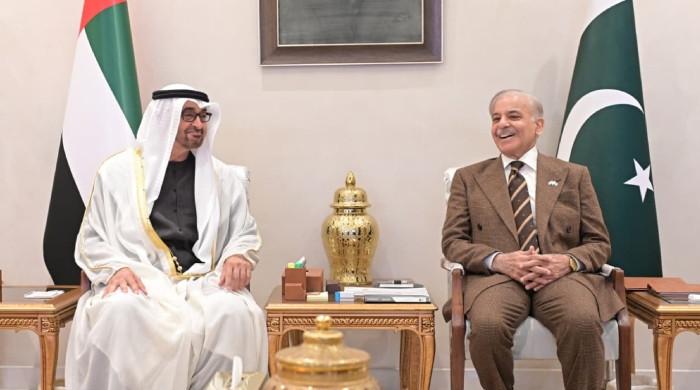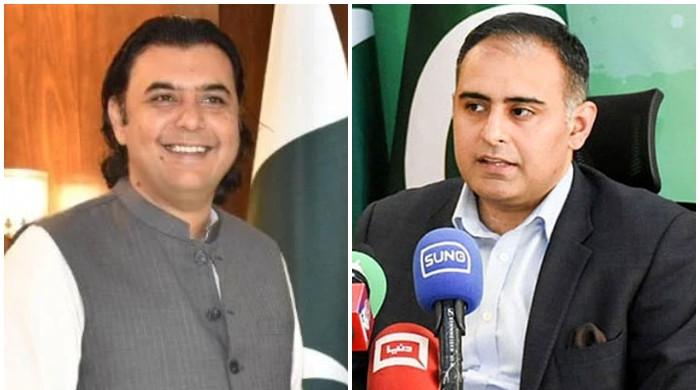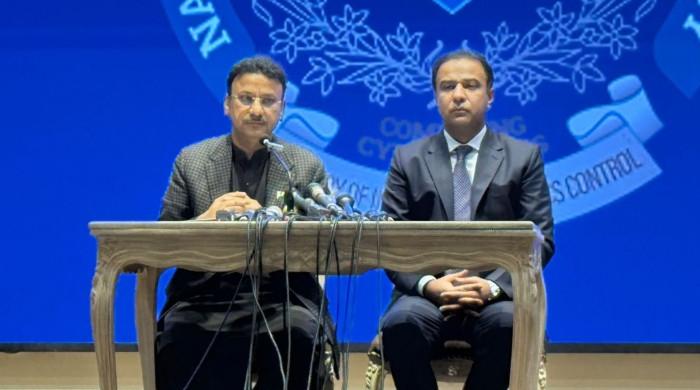Pakistan calls for complete release of Afghanistan's assets after US decides to keep half
"Utilisation of Afghan funds should be sovereign decision of Afghanistan," says FO spokesperson Asim Iftikhar
February 12, 2022
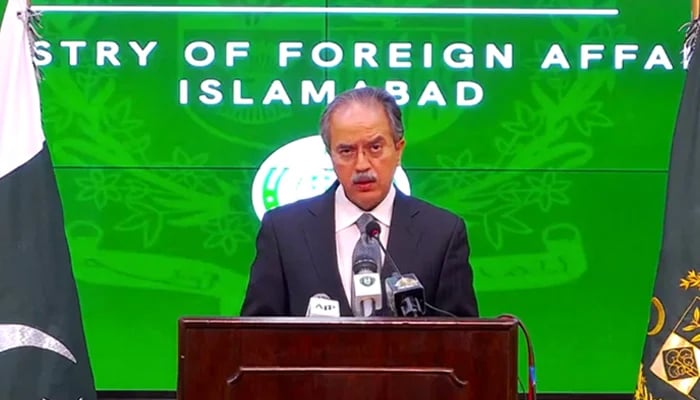
- Funds' utilisation should be sovereign Afghan decision, FO says.
- Afghans facing grave economic, humanitarian challenges, FO says.
- US has decided to keep half of $7bn Afghan assets in the country.
ISLAMABAD: Pakistan has called for the complete unfreezing of Afghanistan's assets after the Joe Biden-led administration in the United States decided to keep half of the $7 billion Afghan assets in the country.
Biden on Friday signed an executive order to deal with the threat of an economic collapse in Afghanistan, setting wheels in motion for a complex resolution of competing interests in the country's assets.
The United States is seeking to free up half of the $7 billion in frozen Afghan central bank assets on US soil to help the Afghan people while holding the rest to possibly satisfy terrorism-related lawsuits against the Taliban, the White House said.
In a statement on Saturday, Foreign Office spokesperson Asim Iftikhar said Pakistan had seen the US decision to release $3.5 billion for humanitarian assistance in Afghanistan and $3.5 billion for compensation to families of 9/11 victims.
Read more: Biden plans to free half of $7bn frozen Afghan funds for aid, remainder to stay in US
"Over the past several months, Pakistan has been consistently emphasising the need for international community to quickly act to address the unfolding humanitarian catastrophe in Afghanistan and to help revive the Afghan economy, as the two are inextricably linked," the spokesperson said.
'Time is of the essence'
Iftikhar added that finding ways to unfreeze the Afghan foreign reserves urgently would help address the humanitarian and economic needs of the Afghan people.
He said Islamabad's principled position on the frozen Afghan foreign bank reserves remains that these are owned by the Afghan nation and these should be released.
"The utilisation of Afghan funds should be the sovereign decision of Afghanistan," he said.
The spokesperson highlighted that the Afghan people are facing grave economic and humanitarian challenges and the international community must continue to play its important and constructive role in alleviating their sufferings.
"Time is of the essence."
Read more: Jemima Goldsmith berates US after Joe Biden keeps half of Afghanistan's assets in US
The multi-step plan to release funds calls for half of the funds to remain in the United States, subject to ongoing litigation by US victims of terrorism, including relatives of those who died in the September 11, 2001, hijacking attacks, the officials said.
Senior US administration officials said they would work to ensure access to $3.5 billion of the assets — which stem mainly from aid to Afghanistan over the past two decades — to benefit the Afghan people.
They said Washington would set up a third-party trust to administer the funds for which details were still being worked out.
Taliban call for unfreezing assets
Washington froze the Afghan funds after the Taliban's military takeover but has faced pressure to find a way to release the money without recognising the new administration, which says it is theirs.
Suhail Shaheen, the Taliban’s designated representative to the UN, called for the entire amount to be unfrozen and kept under the control of the Afghan central bank.
"The reserve is the property of Da Afghanistan Bank and by extension, the property of the people of Afghanistan," Shaheen told Reuters.
The spokesman of the Taliban’s Doha office blasted the US move in a tweet: "Stealing and takeover of frozen money which belongs to the Afghan people by US shows the lowest level of human and moral decline of a country."
'Injustice'
Meanwhile, Afghanistan's central bank criticised Washington's plan to use half the bank's $7 billion in frozen assets on US soil.
Da Afghanistan Bank (DAB) criticised the decision, saying its assets had been invested in the United States in line with international practices, and belonged to the people of Afghanistan.
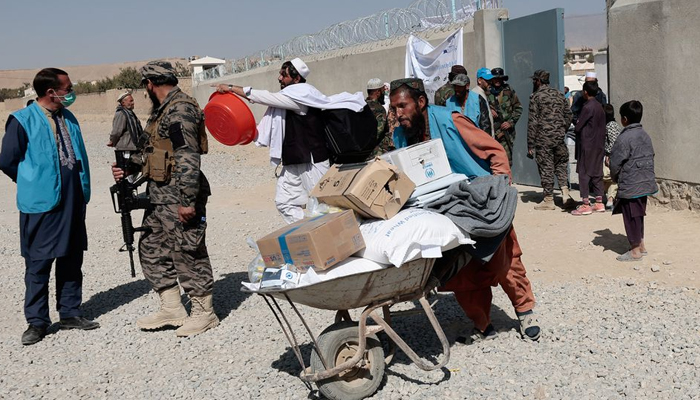
"DAB considers the latest decision of USA on blocking FX (foreign exchange) reserves and allocating them to irrelevant purposes, injustice to the people of Afghanistan," the central bank said in a statement.
"(DAB) will never accept if the FX reserves of Afghanistan is paid under the name of compensation or humanitarian assistance to others and wants the reversal of the decision and release of all FX reserves of Afghanistan," it added.
— Additional input from Reuters






